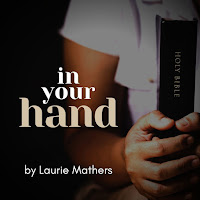Light of the World

"You are the salt of the earth, but if salt has lost its taste, how shall its saltiness be restored? It is no longer good for anything except to be thrown out and trampled under people's feet. You are the light of the world. A city set on a hill cannot be hidden. Nor do people light a lamp and put it under a basket, but on a stand, and it gives light to all in the house. In the same way, let your light shine before others, so that they may see your good works and give glory to your Father who is in heaven.” (Mt. 5:13-16). There are few things easier to forget in the Land of the Free than the fact that we Christians are not our own, we were bought with a price. Our purpose in life is not to please ourselves, but to glorify God (see 1 Cor. 6:19-20).The purpose of salt is to be salty; the purpose of lamps is to give light; and the purpose of Christians is to glorify God with our lives. “So, whether you eat or drink, or whatever you do, do all to the glory of God. Give no offens
















